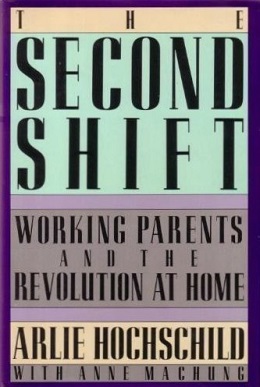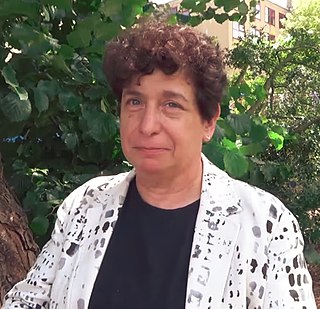Related Research Articles

A sex worker is a person who provides sex work, either on a regular or occasional basis. The term is used in reference to those who work in all areas of the sex industry.

Human capital flight is the emigration or immigration of individuals who have received advanced training at home. The net benefits of human capital flight for the receiving country are sometimes referred to as a "brain gain" whereas the net costs for the sending country are sometimes referred to as a "brain drain". In occupations with a surplus of graduates, immigration of foreign-trained professionals can aggravate the underemployment of domestic graduates, whereas emigration from an area with a surplus of trained people leads to better opportunities for those remaining. But emigration may cause problems for the home country if the trained people are in short supply there.

Human migration is the movement of people from one place to another with intentions of settling, permanently or temporarily, at a new location. The movement often occurs over long distances and from one country to another, but internal migration is also possible; indeed, this is the dominant form of human migration globally. Migration is often associated with better human capital at both individual and household level, and with better access to migration networks, facilitating a possible second move. It has a high potential to improve human development, and some studies confirm that migration is the most direct route out of poverty.Age is also important for both work and non-work migration. People may migrate as individuals, in family units or in large groups. There are four major forms of migration: invasion, conquest, colonization and emigration/immigration.

Sex work is "the exchange of sexual services, performances, or products for material compensation. It includes activities of direct physical contact between buyers and sellers as well as indirect sexual stimulation". Sex work only refers to voluntary sexual transactions; thus, the term does not refer to human trafficking and other coerced or nonconsensual sexual transactions such as child prostitution. The transaction must take place between consenting adults of the legal age and mental capacity to consent and must take place without any methods of coercion, other than payment. The term emphasizes the labor and economic implications of this type of work. Furthermore, some prefer the use of the term because it grants more agency to the sellers of these services.

Arlie Russell Hochschild is an American professor emeritus of sociology at the University of California, Berkeley and writer. Hochschild has long focused on the human emotions that underlie moral beliefs, practices, and social life generally. She is the author of nine books including, most recently, Strangers in Their Own Land: Anger and Mourning on the American Right, a finalist for the National Book Award. In The Second Shift, The Managed Heart, The Time Bind, and many of her other books, she continues the tradition of C. Wright Mills by drawing links between his concepts of private troubles and public issues. Hochschild has a personal fascination with the relationship between peoples inner experiences and outer appearance, so Mills’ concepts were very influential in the direction of her later works in studying emotion sociologically. His influence can be seen quite clearly in Strangers in Their Own Land: Anger and Mourning on the American Right where she analyzes the lives of immigrants for her emotion research.
Emotional labor is the process of managing feelings and expressions to fulfill the emotional requirements of a job. More specifically, workers are expected to regulate their emotions during interactions with customers, co-workers, clients and managers. This includes analysis and decision making in terms of the expression of emotion, whether actually felt or not, as well as its opposite: the suppression of emotions that are felt but not expressed. This is done so as to produce a certain feeling in the customer or client that will allow the company or organization to succeed.

Marxist feminism is a philosophical variant of feminism that incorporates and extends Marxist theory. Marxist feminism analyzes the ways in which women are exploited through capitalism and the individual ownership of private property. According to Marxist feminists, women's liberation can only be achieved by dismantling the capitalist systems in which they contend much of women's labor is uncompensated. Marxist feminists extend traditional Marxist analysis by applying it to unpaid domestic labor and sex relations.
Transnationalism is a research field and social phenomenon grown out of the heightened interconnectivity between people and the receding economic and social significance of boundaries among nation states.

Immigration is the international movement of people to a destination country of which they are not natives or where they do not possess citizenship in order to settle as permanent residents or naturalized citizens. Commuters, tourists, and other short-term stays in a destination country do not fall under the definition of immigration or migration; seasonal labour immigration is sometimes included, however.
Migrant domestic workers are, according to the International Labour Organization’s Convention No. 189 and the International Organization for Migration, any persons "moving to another country or region to better their material or social conditions and improve the prospect for themselves or their family," engaged in a work relationship performing "in or for a household or households." Domestic work itself can cover a "wide range of tasks and services that vary from country to country and that can be different depending on the age, gender, ethnic background and migration status of the workers concerned." These particular workers have been identified by some academics as situated within "the rapid growth of paid domestic labor, the feminization of transnational migration, and the development of new public spheres." Prominent discussions on the topic include the status of these workers, reasons behind the pursue in this labour, recruitment and employment practices in the field, and various measures being undertaken to change the conditions of domestic work among migrants.
The economic results of migration impact the economies of both the sending and receiving countries.
Reverse brain drain is a form of brain drain where human capital moves in reverse from a more developed country to a less developed country that is developing rapidly. These migrants may accumulate savings, also known as remittances, and develop skills overseas that can be used in their home country.

Heidi I. Hartmann is an American feminist economist who is founder and president emerita of the Washington-based Institute for Women's Policy Research (IWPR), a research organization created to conduct women-centered, public policy research. She retired from her position as President and CEO in 2019.

The Second Shift: Working Parents and the Revolution at Home is a book by Arlie Russell Hochschild with Anne Machung, first published in 1989. It was reissued in 2012 with updated data. In the text, Hochschild investigates and portrays the double burden experienced by late-20th-century employed mothers.
Women migrant workers from developing countries engage in paid employment in countries where they are not citizens. While women have traditionally been considered companions to their husbands in the migratory process, most adult migrant women today are employed in their own right. In 2017, of the 168 million migrant workers, over 68 million were women. The increase in proportion of women migrant workers since the early twentieth century is often referred to as the "feminization of migration".

The feminist movement, also known as the women's movement, refers to a series of social movements and political campaigns for radical and liberal reforms on women's issues created by the inequality between men and women. Such issues are women's liberation, reproductive rights, domestic violence, maternity leave, equal pay, women's suffrage, sexual harassment, and sexual violence. The movement's priorities have expanded since its beginning in the 1800s, and vary among nations and communities. Priorities range from opposition to female genital mutilation in one country, to opposition to the glass ceiling in another.

Joan Claire Tronto, is professor of political science at the University of Minnesota, and was previously professor of women's studies and political science at Hunter College and the Graduate School, City University of New York.

Reproductive labor or work is often associated with care giving and domestic housework roles including cleaning, cooking, child care, and the unpaid domestic labor force. The term has taken on a role in feminist philosophy and discourse as a way of calling attention to how women in particular are assigned to the domestic sphere, where the labor is reproductive and thus uncompensated and unrecognized in a capitalist system. These theories have evolved as a parallel of histories focusing on the entrance of women into the labor force in the 1970s, providing an intersectionalist approach that recognizes that women have been a part of the labor force since before their incorporation into mainstream industry if reproductive labor is considered.
A global care chain is a globalized labor market for workers who provide care-intensive labor, such as childcare, eldercare and healthcare. The term was coined by the feminist sociologist Arlie Hochschild. The movement of these workers is an important topic for research and policy development since the number of international migrants around the world has grown substantially since the 1990s.
Almost half of international migrants are women, generally travelling as either migrant workers or refugees. Women migrant workers migrate from developing countries to high-income countries to engage in paid employment, typically in gendered professions such as domestic work. Because their work disproportionately takes place in private homes, they are vulnerable to exploitation and abuse. Wages earned are largely sent home to the originating country to support the cost of living of the family left behind.
References
- ↑ Cooray, Devoushi (2017-06-02). "The Care Drain and its Effects on the Families Left Behind: A Case Study of Sri Lanka". Comparative Sociology. 16 (3): 369–392. doi:10.1163/15691330-12341427. ISSN 1569-1322.
- ↑ Lutz, H.; Palenga-Mollenbeck, E. (2012-01-18). "Care Workers, Care Drain, and Care Chains: Reflections on Care, Migration, and Citizenship". Social Politics: International Studies in Gender, State & Society. 19 (1): 15–37. doi:10.1093/sp/jxr026. ISSN 1072-4745. PMID 22611571. S2CID 38784823.
- ↑ Isaksen, Lise Widding; Devi, Sambasivan Uma; Hochschild, Arlie Russell (2008-11-01). "Global Care Crisis: A Problem of Capital, Care Chain, or Commons?". American Behavioral Scientist. 52 (3): 405–425. doi:10.1177/0002764208323513. S2CID 143790910.